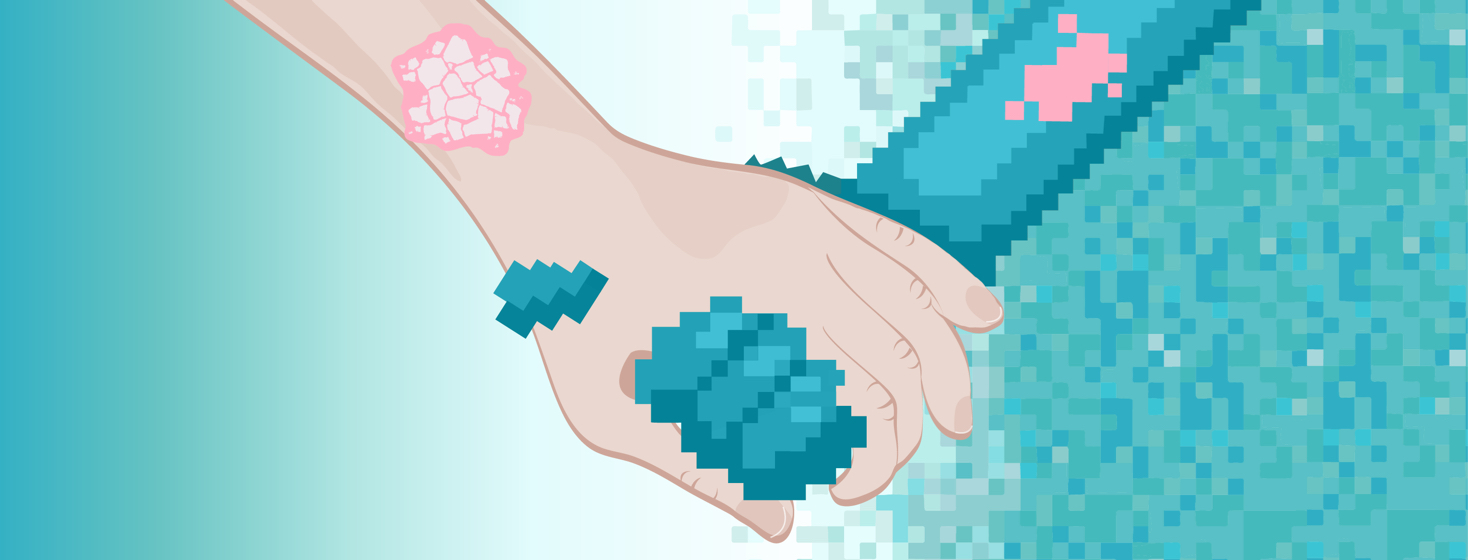Are Eczema Online Platforms Creating More Harm?
While I’m grateful to see our online eczema community growing, I’m unsure if it’s creating more harm than good.
- Are these platforms leaving people in a never-ending rat wheel of searching for better ways to manage their eczema?
- Are people being corrected based on what works for 'them' versus directing them to resources that can expand their curiosity?
If there aren't any guidelines or supervision, these online communities can cause more harm to people who are desperate and frantic for answers.
Online platforms
In an era where we fiend for instant responses and gratification, I’m concerned on whether we – patients living with a skin disease or caregivers of patients - are creating more damage than good through the use of online platforms.
For a few years now, I've been a participant of multiple online groups that focus on eczema and specifically atopic dermatitis. At first, I was super excited to know that something like this even existed given the fact that I grew up thinking I was the only one in the world with eczema. But sooner or later, I found myself avoiding the same groups that once caused me joy and excitement.
Dangers of online platforms
Due to the enormous amount of information (and misinformation) that is often correlated with eczema, my feed on these platforms is often bombarded by new ways to manage eczema, dieting advice, personal experiences, fears, expectations and so much more. I would sometimes find myself feeling more confused, disempowered, and frustrated after getting lost in all of the comments.
Not a healthcare professional
Similar to the concept of "self-diagnosis" - where a person diagnoses themselves based on a Google search - people are participating in these online platforms to seek advice and information that should ultimately be sought out by a doctor or healthcare professional. That's why I find it important to become aware on whether or not the groups you are a part of, or plan to be a part of, simplifies ways to manage your skin condition or perhaps leaves you in desperation.
Creating personal guidelines
If you’re a part of an eczema online support group or plan on participating in one, here are some simple steps to keep in mind that have supported me:
Do your research
Take some time to read and research if someone has already asked or answered the question you’re searching for. Many of these online platforms are a free-for-all, meaning that there’s very little supervision for what people can and do post. As a result, there is an overwhelming amount of repeated posts that tend to create fog-over posts that may highlight success stories or that speak on resources to better support the individual.
Try one new thing at a time
If you’re like me and you sometimes get stuck in reading about the different methods of healing eczema and suddenly 3 hours go by and you feel empowered to try everything all at once… yeah, no…bad idea. This doesn’t support me and possibly won’t support you either. It’s important to try one new thing at a time so that you can properly control, observe, and analyze whether this ONE item is making a difference with your eczema.
3 week rule
TIP: When trying a new product or method, I often times like to use the “3 Week Rule” – while continuing my normal routine (dieting, physical activities, work, etc.). Test the new entity consistently for a minimum of 3 weeks before concluding whether it works for you or not. The longer you try it, the more you’ll be able to gauge its effectiveness for you.
Consult with a health professional
There’s a lot of information and misinformation out their folks. If you’re going to try something new that another warrior has suggested, it is your duty to do your research and seek for support from the expertise of a medical professional. Don’t take someone’s word and experience for what is truth and fact; ask your doctor!
Protecting yourself
While I’m sure platforms provide an opportunity for patients and caregivers to exchange information and learn from one another, it's important to become aware of setting boundaries and personal guidelines to prevent confusion and frustration.
Question: Are you part of any eczema online support groups? Comment below which ones are your favorite!

Join the conversation